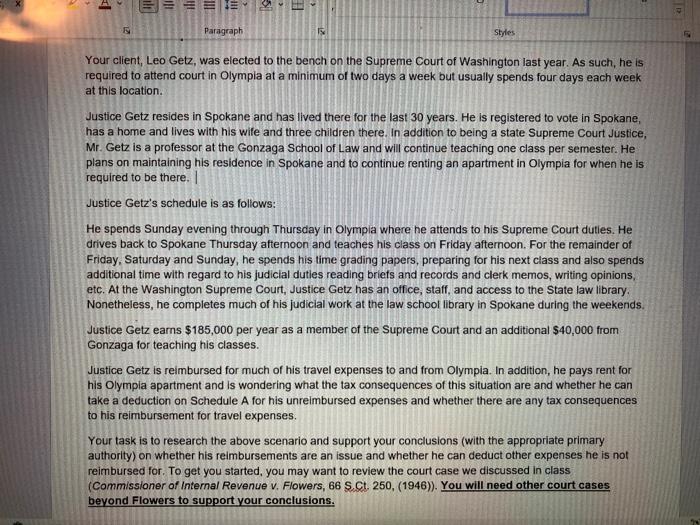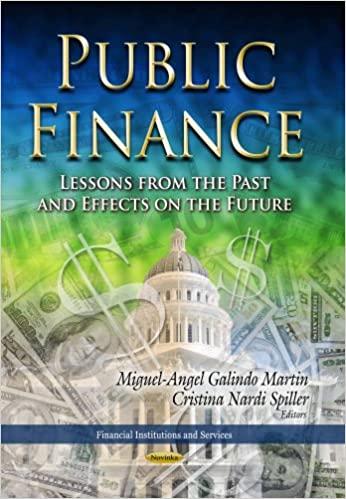Your client, Leo Getz, was elected to the bench on the Supreme Court of Washington last year. As such, he is required to attend court in Olympia at a minimum of two days a week but usually spends four days each week at this location. Justice Getz resides in Spokane and has lived there for the last 30 years. He is registered to vote in Spokane, has a home and lives with his wife and three children there. In addition to being a state Supreme Court Justice, Mr. Getz is a professor at the Gonzaga School of Law and will continue teaching one class per semester. He plans on maintaining his residence in Spokane and to continue renting an apartment in Olympia for when he is required to be there. Justice Getz's schedule is as follows: He spends Sunday evening through Thursday in Olympla where he attends to his Supreme Court duties. He drives back to Spokane Thursday aftemoon and teaches his class on Friday aftemoon. For the remainder of Friday, Saturday and Sunday, he spends his time grading papers, preparing for his next class and also spends additional time with regard to his judicial duties reading briefs and records and clerk memos, writing opinions, etc. At the Washington Supreme Court, Justice Getz has an office, staff, and access to the State law library. Nonetheless, he completes much of his judicial work at the law school library in Spokane during the weekends. Justice Getz earns $185,000 per year as a member of the Supreme Court and an additional $40,000 from Gonzaga for teaching his classes. Justice Getz is reimbursed for much of his travel expenses to and from Olympia. In addition, he pays rent for his Olympla apartment and is wondering what the tax consequences of this situation are and whether he can take a deduction on Schedule A for his unreimbursed expenses and whether there are any tax consequences to his reimbursement for travel expenses. Your task is to research the above scenario and support your conclusions (with the appropriate primary authority) on whether his reimbursements are an issue and whether he can deduct other expenses he is not reimbursed for. To get you started, you may want to review the court case we discussed in class (Commissioner of Internal Revenue v. Flowers, 66S.Ct.250,(1946) ). You will need other court cases beyond Flowers to support your conclusions







